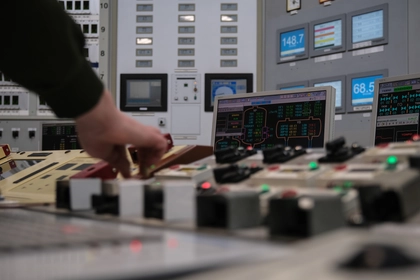NATO chief Jens Stoltenberg and Hungarian Prime Minister Viktor Orban agreed on Wednesday that Budapest would “not block” the defense alliance from contributing more to Ukraine’s fight against Russia's invasion.
Stoltenberg, who has been touring NATO members, is trying to hammer out a plan to be announced at a summit in Washington next month for NATO to play a bigger role in coordinating weapons deliveries and training for Kyiv’s forces.
JOIN US ON TELEGRAM
Follow our coverage of the war on the @Kyivpost_official.
Hungary has objected, claiming it could drag the alliance into the war with Russia. It has already refused to supply arms to Ukraine.
As Moscow’s closest EU ally despite its invasion of Ukraine, Orban is increasingly stoking fears of a war between the West and Russia, which he blames on Brussels and NATO.
The nationalist premier recently also suggested that he would like to “redefine” the position of Hungary in the alliance to prevent any participation in operations “outside NATO territory.”
On Wednesday, the two men agreed on a way forward, including Hungary not blocking efforts by Stoltenberg to get NATO members to pledge to keep supplying at least support worth €40 billion ($43 billion) a year to Ukraine for as long as it takes.
“What the prime minister and I have agreed today is that Hungary will not block other allies to agree a pledge for financial support to Ukraine and the leading role for NATO in coordinating support to Ukraine,” Stoltenberg told reporters in a joint press conference with Orban following their meeting in Budapest.

ISW Russian Offensive Campaign Assessment, December, 20, 2024
Orban hailed “a difficult but constructive negotiation” with Stoltenberg.
“Today, we received guarantees that in the case of the Russia-Ukraine war, Hungary will not have to participate in military actions outside its territory,” Orban told reporters at the joint press conference.
“Hungary will neither contribute money nor send people to this war, nor will Hungarian territory be used for involvement in this war,” he added.
However, Orban warned the “challenging period is not over,” vowing to keep advocating for “decisions that align with Hungary's interests” after the NATO summit.
Increasing frustration
NATO defense ministers meeting in Brussels Thursday will now look to seal the final agreement on NATO's role in weapons deliveries ahead of the summit.
The other 31 countries in the alliance appear on board with the plan – although diplomats said there remain some technical details to finalize.
Diplomats from some NATO countries have expressed skepticism about granting Orban a formal opt-out, arguing that sets a bad precedent inside the alliance.
Some diplomats have been getting increasingly frustrated with Budapest – one of the NATO countries friendliest to Moscow.
One diplomat said that “in recent months especially” Hungary's opposition had become a growing issue inside the US-led alliance.
NATO has so far avoided being directly involved in weapons deliveries to Ukraine, for fear it would move it closer to conflict with Russia.
Instead, it has left it to Kyiv's main backer, the United States, to coordinate arms sent by alliance members.
Officials and diplomats say the reason for NATO to take more of a role now is to try to ensure deliveries could continue even if Republican presidential candidate Donald Trump were re-elected and pulled the plug on US support.
You can also highlight the text and press Ctrl + Enter






